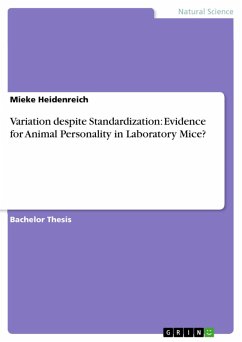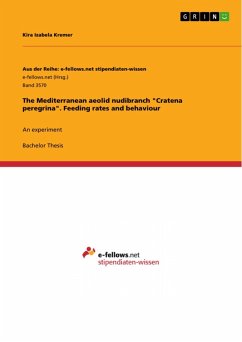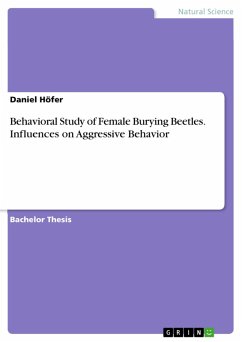Bachelor Thesis from the year 2011 in the subject Biology - Behaviour, grade: 1,7, University of Münster (Department of Behavioural Biology), language: English, abstract: It is generally assumed that human beings have personalities, while animals do not. This assumption is not only derived from common sense, but also a basic principle of western philosophy and social theory (Mead, 1934). Still, dog owners will not stop mumbling about their cute puppy's unique personality. And they find support from unexpected source: Biologists argue that humans are nothing more, nothing less than animals. So they, too, begin to take into consideration that animals - including humans - might have a personality. What seems like a solely philosophical question at first glance, has important practical impacts, because the existence of animal personality contradicts the assumption that animals used in biological experiments can be standardized, and have uniform properties. If despite all efforts of standardization a residual variation cannot be eliminated, pharmaceutical and medical experiments might lose part of their validity. Therefore the hypothesis that laboratory mice possess a personality was tested in an empirical study. In this study a set of standard behavior tests was performed with 40 female mice of the strain C57BL/6N. The data was then analyzed for correlations over time and across contexts, since this is a requirement for animal personality.
Dieser Download kann aus rechtlichen Gründen nur mit Rechnungsadresse in A, B, BG, CY, CZ, D, DK, EW, E, FIN, F, GR, HR, H, IRL, I, LT, L, LR, M, NL, PL, P, R, S, SLO, SK ausgeliefert werden.









